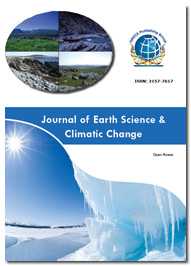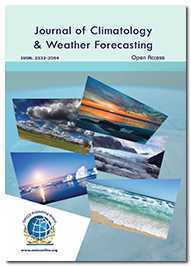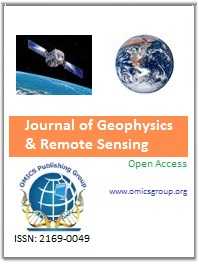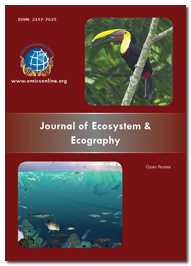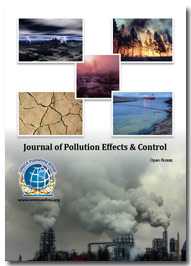Theme: Stimulating and Analysing the changes of Earth & Climate-ICESCC
Renowned Speakers
Earth Science-2016
Conference series LLC annually organizes a series of International Earth Science conferences, Climate Change Conferences, Geological Conferences and Geo-sciences Conferences .On behalf of Earth Science Conferences, we extend a warm welcome to the distinguished Laureates, Speakers and Delegates related to Earth Sciences and Climate Change Research, Geology and Geosciences Research, Earth Science Industries and Policy Makers from all around the world to Bangkok to attend its 5th International Conference on Earth Science and Climate Change being organized at the Hotel AVANI Atrium, Bangkok, Thailand during July 25-27, 2016.
Earth Science Conferences is organised on the theme- “Stimulating and Analysing the changes of Earth & Climate”. The conference aims to bring together leading Earth Science Scientists, Geologists, Meteorologists, Space Scientists, Climate Change Researchers, Environmental Protection Associations, Academicians, Researchers, Policy Makers, to exchange and share their experience and research results about all aspects of Earth Sciences and Climate Change.
Track 1: Earth Evolution Sciences
The historical backdrop of Earth concerns the advancement of the planet Earth from its evolutionary development to the present day. About all branches of sciences have contributed to the comprehension of the main events of the Earth's past. The time of Earth is roughly around one third of the age of the universe. An incredible amount of topographical changes has happened in that timespan, joined by natural change. There has been a continuous changes happening in the Earth's crust since the time of its origin, and as well the life of different species continue to evolve with lot of physiological changes. The process of plate tectonics continues to play a dominant role in the shaping of Earth's oceans and continents and the living species they harbour. Changes in the biosphere now dominated by human activity and is been still continuing resulting in the severe adverse effects on the atmosphere and other systems of the Earth's surface, such as the integrity of the ozone layer, the proliferation of greenhouse gases, the conditions of productive soils and clean air and water, and others. Earth Scientists, Geologists, Meteorologists, play a significant role in studying the continuous changes in the Erath and gives alerts as well suggests necessary steps to be take under severe natural disasters. Therefore Earth Science conferences are organised to bring the awareness and importance of the Earth Science and climate change consequences in the general public
Related Earth Science Conferences | Environmental Conferences | Climate Change Conferences | Geological Conferences | Global Warming Conferences: 5th International Conference on Earth Science & Climate Change, Bangkok, Thailand July 25-27, 2016; 3rd International Conference on Geology, April 21-22, 2016 Dubai, UAE; 3rd Global Geologists Annual Meeting, July 11-12, 2016 Brisbane, Australia; International Conference on Geosciences, October 06-07, 2016 Orlando, Florida; 18th International Conference on Geology and Earth Systems, March 1 - 2, 2016, Miami, USA; European Planetary Science Congress, September 27– October 02, 2015; 2nd Conference on Astrophysics and Space Science, February 28- Mar 1, Beijing, China; Geological Society of London, American Geophysical Union, Geological Society of America, History of Earth Sciences Society
Related Associations:
Geological Society of London | American Geophysical Union | Geological Society of America | History of Earth Sciences Society
Track 2: Geosciences
Earth Science Conferences invites you to speak on geosciences which begin with the ground we walk on, delve inward to the centre of the Earth and expand outward to other planetary bodies in our solar system. Climate, biogeochemical cycles, and planetary tectonics are the three basic processes that geoscientists deal with. The surface environment of the Earth is controlled by interactions between the deep Earth, the atmosphere, the hydrosphere, and the biosphere. These interactions occur on timescales ranging from picoseconds for chemical reactions on mineral surfaces to the billions of years over which plate tectonic processes and earth’s evolution take place. Investigations are visible on what shapes our world and the environment in which we live, in order to understand the interactions between Earth's geology, atmosphere, oceans, biosphere and human responses and roles. Earth Science Conference focuses on the need to develop new seismological, electromagnetic, gravitational, magnetic, and industrial seismic methods to interrogate the Earth for information on Earth’s processes.
Related Earth Science Conferences | Environmental Conferences | Climate Change Conferences | Geological Conferences | Global Warming Conferences: International Conference on Geosciences, October 06-07, 2016 Orlando, Florida, USA; 2nd International Conference on Geology, April 21-22, 2016 Dubai, UAE; 5th International Conference on Earth Science & Climate Change, July 25-27, 2016 Bangkok, Thailand; World Congress on GIS and Remote Sensing August 01-03, 2016 New Orleans, Louisiana, USA; 5th International Conference on Petroleum Geology & Petroleum Industry, November 24-25, 2016 Dubai, UAE; 35th International Geological Congress, 27 August – 4 September 2016, Cape Town, South Africa; AAPG 2016 Annual Convention & Exhibition, 19-22 June 2016, Alberta, Canada; European Geosciences Union General Assembly 2016, 17–22 April 2016, Vienna, Austria; GeoConvention2016: Optimizing Resources, March 7- 11, 2016, Alberta, Canada; IEEE International Geosciences & Remote Sensing Symposium, June 26 – July 1, 2016, Beijing, China
Related Associations:
American Geophysical Union | Asia Oceania Geosciences Society | Geological Society of London | Canadian Geophysical Union
Track 3: Geology
Geology means, literally, the study of the Earth. It is the core discipline of earth sciences and encompasses many different phenomena, including plate tectonics and mountain building, volcanoes and earthquakes, and the long-term evolution of Earth’s atmosphere, surface and life. Geology reveals the structure of the Earth and its surface features, what causes earthquakes and tsunamis, and why volcanoes form and erupt, which minerals form the building blocks of rocks, and how rocks are made and destroyed and the dramatic changes that have happened over Earth’s long history. Because of the ever-increasing demand for resources, the growing exposure to natural hazards, and the changing climate, geology is of considerable societal relevance. Geological Conference offers a strong foundation to discover the processes that shape the earth giving a solid understanding of the physical sciences with a quantitative emphasis.
Related Earth Science Conferences | Environmental Conferences | Climate Change Conferences | Geological Conferences | Global Warming Conferences: 2nd International Conference on Geology, April 21-22, 2016 Dubai, UAE; 3rd Global Geologists Annual Meeting, July 11-12, 2016 Brisbane, Australia; 5th International Conference on Earth Science & Climate Change, Bangkok, Thailand July 25-27, 2016; 5th International Conference on Petroleum Geology & Petroleum Industry, November 24-25, 2016 Dubai, UAE; World Congress on Petroleum and Refinery, July 21-23, 2016 Brisbane, Australia; 35th International Geological Congress, August 27 – September 4, 2016 Cape Town, South Africa; 2nd Annual International Conference on Geology, June 6-9, 2016 Athens, Greece; 3rd International Conference on Geological and Civil Engineering (ICGCE 2016), January 12-14, Penang, Malaysia; 18th International Conference on Geology and Geophysics, February 15 - 16, 2016, Barcelona, Spain; AAPG 2016 Annual Convention and Exhibition (ACE), 19-22 June, 2016, Calgary, Canada
Related Associations:
Asia Oceania Geosciences Society | Swiss Geological Society | International Union of Geological Sciences |European Geosciences Union
Track 4: Global Warming
Over the past 100 years, the global temperature has increased by approximately 0.6°C and is projected to continue to rise at a rapid rate. The continued increase in the atmospheric concentration of carbon dioxide due to anthropogenic emissions is predicted to lead to significant climate change. The global nitrogen cycle has been altered by human activity to such an extent that more nitrogen is fixed annually by humanity than by all natural pathways combined. This added nitrogen alters the atmospheric chemistry and aquatic ecosystems. These and other equally certain components of global environmental change are the primary causes of anticipated climate change. Global Warming Conference is working to find mitigation and adaptation strategies for the ever increasing release of greenhouse gases in the atmosphere.
Related Earth Science Conferences | Environmental Conferences | Climate Change Conferences | Geological Conferences | Global Warming Conferences: 5th International Conference on Earth Science & Climate Change, Bangkok, Thailand July 25-27, 2016; 5th International Conference on Biodiversity, March 10-12, 2016 Madrid, Spain; 3rd World Congress and Expo on Recycling, October 3-5, 2016 Atlanta, Georgia, USA; International Conference on Pollution Control &Sustainable Environment, April 25-26, 2016 Dubai, UAE; International Conference on Coastal Zones, May 16-18, 2016 Osaka, Japan; Global Conference on Global Warming-2016, May 15-18, 2016, Nova Scotia, Canada; 18th International Conference on Climate Change and Global Warming, February 25 - 26, 2016, London, United Kingdom; Berlin Conference on Global Environmental Change, May 23-24, 2016, Berlin, Germany; Anthropology, Weather and Climate Change 2016, May 27-29, 2016, London, England; 4th International Climate Change Adaptation Conference :Adaptation Futures 2016, May 10- 13, 2016
Related Associations:
CICERO | Climate Action | The Climate Group | International Development Association
Track 5: Climate Change
Earth's climate is changing and the subject is likely to be the predominant scientific issue of the 21st century. The fate of humanity and nature may depend on the early recognition and understanding of anthropogenic effects on climate change. There is concurrence that human activities are leading to dangerous interference in Earth’s climate. Anthropogenic activities are contributing to climate change, primarily by releasing billions of tons of carbon dioxide and other heat-trapping gases, known as greenhouse gases, into the atmosphere every year. Climate change is not just affecting the surface of our world; it's making the Earth move under our feet. Climate Change Conference discusses the target of keeping the increase in the average annual temperature below 2 °C, which has been a key focus of the international climate debate. Timely and stringent climate change mitigation is the need of the hour to at least buy some time for climate change adaptation.
Related Earth Science Conferences | Environmental Conferences | Climate Change Conferences | Geological Conferences | Global Warming Conferences: 5th International Conference on Earth Science & Climate Change, Bangkok, Thailand July 25-27, 2016; 5th International Conference on Biodiversity, March 10-12, 2016 Madrid, Spain; 5th International Conference on Petroleum Geology & Petroleum Industry, November 24-25, 2016 Dubai, UAE; 2nd International Conference on Geology, April 21-22, 2016 Dubai, UAE; 2nd International Conference on Green Energy & Expo, Nov 28-30, 2016 Atlanta, USA; 4th International Climate Change and Adaptation Conference, May 10-13, 2016, Rotterdam, The Netherlands; International Climate Conference on Climate Change: Impacts and Responses – A Common Ground Conference, 21-22, April, 2016, Hanoi, Vietnam; 5th International Conference on Climate Change andHumanity (ICCCH 2016), January 23-25, 2016 Pattaya, Thailand; Adaptation Futures 2016: Practices and Solutions, May 10-13, 2016, Zuid-Holland, Netherlands; 28th Conference on Climate Variability and Change, January 10-14, 2016, Atlanta, USA
Related Associations:
United Nations Industrial Development Organization | Intergovernmental Panel on Climate Change | US Climate Variability and Predictability Program | The World Bank
Track 6: Meteorology
Meteorology is the study of the atmosphere, atmospheric phenomena, and atmospheric effects on our weather. It is essentially an inter-disciplinary science because the atmosphere, land and ocean constitute an integrated system. Research is focused on atmospheric composition including air quality, weather and hazardous weather, technologies for modelling the atmosphere, among other areas. Meteorologists rely heavily on algorithms computer software and model systems that are versatile, intuitive, and user-friendly. Earth Science Conference studies the new and updated systems that are being developed that will help researchers to discover new phenomena in meteorology.
Related Earth Science Conferences | Environmental Conferences | Climate Change Conferences | Geological Conferences | Global Warming Conferences: 5th International Conference on Earth Science & Climate Change, Bangkok, Thailand July 25-27, 2016; International Conference on Geosciences, October 06-07, 2016 Orlando, Florida; 5th International Conference on Biodiversity, March 10-12, 2016 Madrid, Spain; 3rd Global Geologists Annual Meeting, July 11-12, 2016 Brisbane, Australia; World Congress on GIS and Remote Sensing August 01-03, 2016 New Orleans, Louisiana, USA; AMOS/ARCCSS National Conference, February 8-11, 2016, Melbourne, Australia ; 6th International Lightning Meteorology Conference (ILMC), April 18-21, 2016, San Diego, USA; 32nd Conference on Hurricanes and Tropical Meteorology, April 17-22, 2016, San Juan , PR; 17th Conference on Mountain Meteorology, June 27-July 1, 2016, Burlington, USA; 44th Conference on Broadcast Meteorology, June 14-17, 2016, Austin, USA
Related Associations:
American Geophysical Union | The Meteoritical Society | National Weather Association | International Meteor Organization
Track 7: Geophysics
Geophysics is a non-invasive technique to study the sub-surface geology of the Earth by utilizing complementary physical properties of the earth such as density, magnetic susceptibility, conductivity, electrical chargeability, seismic velocity, and so on. Earth Science Conference focuses on novel geophysical methods that can provide information on subsurface structure and stratigraphy that is critical to understanding surface processes. Gravity, magnetics, resistivity, electromagnetics, ground-penetrating radar, and various seismic methods are applied across a range of process domains, including faulting, volcanism, topography and weathering, hillslope processes, coastal and sea-level change, aeolian and fluvial processes, and glacial and periglacial processes all to determine the composition and state of the Earth’s interior.
Related Earth Science Conferences | Environmental Conferences | Climate Change Conferences | Geological Conferences | Global Warming Conferences: 5th International Conference on Earth Science & Climate Change, Bangkok, Thailand July 25-27, 2016; 2ndInternational Conference on Geology, April 21-22, 2016 Dubai, UAE; 3rd Global Geologists Annual Meeting, July 11-12, 2016 Brisbane, Australia; World Congress on GIS and Remote Sensing August 01-03, 2016 New Orleans, Louisiana, USA; International Conference on Geosciences, October 06-07, 2016 Orlando, Florida; 12th Conference and Exhibition Engineering Geophysics 2016, April 25-29, 2016, Anapa, Russia; 22nd EuropeanMeeting of Environmental and Engineering Geophysics, September 4-8, 2016, Barcelona, Spain; 7th International geological and geophysical conference and exhibition ‘Saint Petersburg 2016, April 11–14, 2016, Saint Petersburg, Russia; 7th International Conference on Applied Geophysics - “Geophysics towards Sustainable Development of Thailand and AEC”, January 14–15, 2016, Bangkok, Thailand; IUGG Conference on Mathematical Geophysics (CMG), June 6 – 10, 2016, Institute Henri Poincare, Paris
Related Associations:
Canadian Geophysical Union | Geological Society of London | International Union of Geodesy and Geophysics |Canadian Geophysical Union
Track 8: Astronomy
Astronomy is the science of space beyond Earth’s atmosphere. It is the study of the sun, moon, stars, planets, comets, gas, galaxies, gas, dust and other non-Earthly bodies and phenomena. Astronomy is a multi-disciplinary science. Cosmologists study the universe as a whole, including its beginnings. Astrometrists measure great, astronomical distances. Planetologists study planets within our own Solar System as well as those orbiting distant stars. Astronomy is the oldest science, with the first observations of the heavens conducted by our early human ancestors. From Nicolaus Copernicus “theorizing” the sun being in the centre of the solar system, to the development of solar electric propulsion technology, the discovery of the hidden truths of the universe is only just beginning.
Related Earth Science Conferences | Environmental Conferences | Climate Change Conferences | Geological Conferences | Global Warming Conferences: 5th International Conference on Earth Science & Climate Change, Bangkok, Thailand July 25-27, 2016; Annual Astronomy and Astrophysics Congress, December 08-10, 2016 Dallas, Texas, USA; International Conference on Geosciences, October 06-07, 2016 Orlando, Florida; 3rd Global Geologists Annual Meeting, July 11-12, 2016 Brisbane, Australia; 2nd International Conference on Geology, April 21-22, 2016 Dubai, UAE; Essential Cosmology for Next Generation, January 10-16, 2016, Playa del Carmen, Mexico; The Astrophysics of Planetary Habitability, February 8-12, 2016, Vienna, Austria; 2nd Conference on Astrophysics and Space Science (APSS 2016), February 28-March 1, 2016, Beijing, China; 15th Divisional Meeting of the High Energy Astrophysics Division (HEAD) of the AAS, April 3-7, 2016, Naples, Florida; Communicating Astronomy with the Public (CAP) Conference 2016, May 16-20, 2016, Medellín, Colombia
Related Associations:
Astronomical Society of the Pacific | European Association for Astronomy Education | International Association of Astronomical Artists | International Astronomical Union
Track 9: Space Science
Thousands of years ago, on a small rocky planet orbiting a modest star in an ordinary spiral galaxy, our remote ancestors looked up and wondered about their place between Earth and sky. Like them, we ask the same profound questions, such as how did the universe begin? Today, we are beginning to answer these questions. Using scientific tools that range from abstract mathematics and computer modelling to laboratories and observatories, humans are filling in the details of the amazing story of the universe. Exploration of our moon, our neighbour Mars, and in fact, the entire solar system has played a vital role in understanding different conditions and phenomena that might have prevailed and occurred on our own planet which eventually brought it to where it is now. Efforts are on-going to understand the nature and phenomena of the universe, understand the fundamental laws of space, time, and energy and to trace the cycles that have created the conditions for our own existence, to observe signals from the Big Bang, all to unveil the hidden truths of the universe. Earth Science Conference invites scientists searching for the birth of stars and finding planetary systems in our region of the galaxy, including those capable of harbouring life, in an effort to learn whether life exists beyond our solar system.
Related Earth Science Conferences | Environmental Conferences | Climate Change Conferences | Geological Conferences | Global Warming Conferences: 5th International Conference on Earth Science & Climate Change, Bangkok, Thailand July 25-27, 2016; Annual Astronomy and Astrophysics Congress, December 08-10, 2016 Dallas, Texas, USA; International Conference on Geosciences, October 06-07, 2016 Orlando, Florida; 3rd Global Geologists Annual Meeting, July 11-12, 2016 Brisbane, Australia; 2nd International Conference on Geology, April 21-22, 2016 Dubai, UAE; 48th Meeting of the American Astronomical Society Division for Planetary Sciences, Oct 16-21, 2016, Tucson, USA; The 2ndConference on Astrophysics and Space Science (APSS 2016), February 28-March 1, 2016, Beijing, China; 2016Conference on Big Data from Space (BiDS'16), March 15-17, 2016, Tenerife, Spain; 47th Lunar and Planetary Science Conference, March 21–25, 2016, The Woodlands, USA; 41st COSPAR Scientific Assembly and Associated Events, July 30 – August 07, 2016, Istanbul, Turkey
Related Associations:
International Association of Planetary Sciences | Canadian Space Society | The Planetary Society | International Society for Archaeoastronomy and Astronomy in Culture
Track 10: Soil Science
Soil is the reservoir on which most life on earth depends, as the primary source of food, feed, fuel, forage, fibre, and pharmaceuticals. Soil plays a vital role in sustaining human welfare and assuring future agricultural productivity and environmental sustainability. The study of soil as a science provides us with a basic understanding of the physical, chemical, and biological properties and processes essential to such a complex ecosystem. With soils across the world being subject to anthropogenic hazards, research on control and soil bioremediation measures has commenced. Questions like how can soils help with climate change? And what is desertification and what can be done to prevent it- are being addressed at Earth Science Conference to optimally utilize and preserve this fantastically complex environment.
Related Earth Science Conferences | Environmental Conferences | Climate Change Conferences | Geological Conferences | Global Warming Conferences: 5th International Conference on Earth Science & Climate Change, Bangkok, Thailand July 25-27, 2016; 5th International Conference on Biodiversity, March 10-12, 2016 Madrid, Spain; 3rd Global Geologists Annual Meeting, July 11-12, 2016 Brisbane, Australia; International Conference on Geosciences, October 06-07, 2016 Orlando, Florida; 2nd International Conference on Geology, April 21-22, 2016 Dubai, UAE; 5th EUROSOILInternational Congress, July 17-22, 2016, Istanbul, Turkey; International Conference on Conservation Agricultureand Sustainable Land Use, May 31 –June 2, 2016, Budapest, Hungary; International Conference on Advances in Soil Sciences, May 2-5, 2016, Alexandria, Egypt; International Conference-Exhibition on Soils, Sediment andWater, March 15-17, 2016, Lille, France; 8th International Acid Sulphate Soil Conference, July 17-23, 2016, Maryland, USA
Related Associations:
Geological Society of London | European Geosciences Union | International Union of Soil Sciences | Soil Science Society of America
Track 11: Geo-Ethics
The scientific community, as well as our civic communities, must have trust that the conduct of geologists and earth scientists and the integrity of their scientific product, is above reproach. Many scientific communities are plagued with cheating and fraud. Geologists and Earth scientists should recognize ethical dilemmas in the first instance and develop and plan strategies to responsibly participate in the profession, make ethically correct decisions. Earth Science Conference and Geological Conferences are working on the evident need to develop an ethical framework for geosciences research and practices that can help geoscientists confronting ethical dilemmas and make them more aware of their responsibility in conducting their research.
Related Earth Science Conferences | Environmental Conferences | Climate Change Conferences | Geological Conferences | Global Warming Conferences: 5th International Conference on Earth Science & Climate Change, Bangkok, Thailand July 25-27, 2016; International Conference on Geosciences, October 06-07, 2016 Orlando, Florida; 3rd Global Geologists Annual Meeting, July 11-12, 2016 Brisbane, Australia; 2nd International Conference on Geology, April 21-22, 2016 Dubai, UAE; 5th International Conference on Petroleum Geology & Petroleum Industry, November 24-25, 2016 Dubai, UAE; 8th Conference of the African Association of Women in Geosciences(AAWG), October 1-7, 2016 Sibiu, Romania; 35th International Geological Congress, August 27-September 04, 2016, Cape Town, South Africa; XV Pan American Conference on Soil Mechanics and Geotechnical Engineering, November 15-18, 2015, Buenos Aires, Argentina; 2016 Ocean Sciences Meeting, February 21-26, 2016, New Orleans, USA; IX Geological Congress of Spain, September 12-14, 2016, Huelva, Spain
Related Associations:
American Geophysical Union | British Geological Survey | Canadian Geophysical Union | International Association for Promoting Geoethics
Track 12: Environmental Issues
Evidences on environmental issues like environmental degradation, pollution, deforestation, soil erosion and loss of arable land, critical shortages of water, high pollution with heavy metals, the disappearance of protected as well as common animals, advancing desertification, and loss of biodiversity are overwhelmingly present in every corner of the world. Nations are failing in addressing these crises and the potential for further accelerated amplification of these issues is quite considerable. The key to prevent or reduce the effect of environmental issues is sustainability. There is now clear scientific evidence that humanity is living unsustainably. Climate Change Conference is devising strategies to diminish the intensity of these issues could include setting tax rates consistent with environmental targets and reducing the exemption on environmental taxes, phasing out subsidies that are environmentally damaging, creating a sound, cost-benefit analysis of proposed environmental regulations and educating and informing the public about the effects of the choices.
Related Earth Science Conferences | Environmental Conferences | Climate Change Conferences | Geological Conferences | Global Warming Conferences: 5th International Conference on Earth Science & Climate Change, Bangkok, Thailand July 25-27, 2016; International Conference on Pollution Control & Sustainable Environment, April 25-26, 2016 Dubai, UAE; 2nd World Congress and Expo on Recycling, July 25-27, 2016 Berlin, Germany; 3rd World Congress and Expo on Recycling, October 3-5, 2016 Atlanta, Georgia, USA; 2nd International Conference on Green Energy & Expo, Nov 28-30, 2016 Atlanta, USA; 8th International Conference on Chemical, Ecology and Environmental Sciences (ICCEES'2016), January 12-13, 2016, Abu Dhabi, UAE; 3rd International Conference on Environmental and Economic Impact on Sustainable Development, June 8 - 10, 2016, Valencia, Spain; 8th InternationalCongress on Environmental Modelling and Software, July 10-14, 2016, Toulouse, France; The International Society for Ecological Modelling Global Conference 2016, May 08-12, 2016, Baltimore, USA; 6th InternationalConference on Environmental Pollution and Remediation, August 19-20, 2016, Budapest, Hungary.
Related Associations:
US Climate Variability and Predictability Program | Climate Action | International Development Association |European Geosciences Union
Track 13: Atmospheric Chemistry
Atmospheric Chemistry has as its foundation the photochemistry of the molecular constituents of air. Much of the anthropogenic impact on the atmosphere is associated with our increasing use of fossil fuels. Photochemicalsmog or tropospheric ozone is one serious atmospheric problem associated with burning fossil fuels. There has been a steady increase in global atmospheric levels of CO2 which, along with methane, ozone, and CFCs are greenhouse gases, that is, they absorb infrared radiation that is radiated out from the earth. Thus, heat that would otherwise be lost to space is trapped in the atmosphere; leading to increased average annual global temperature. There has been a global decrease in the "natural" abundance of stratospheric ozone of 3-5%. This problem of stratospheric ozone depletion is a very complex and challenging problem. A large number of different toxic pollutants are emitted into the atmosphere as a result of a variety of human activities. Many of these pose humans health risk including pesticides, PCBs, polycyclic aromatic hydrocarbons (PAHs), dioxins, and volatile organic compounds like benzene and carbon tetrachloride. Earth Science and Climate Change Conferencesinvites scientists in this field to measure the atmospheric concentrations of these species, to identify and quantify the sources of these pollutants, and to determine their environmental fate.
Related Earth Science Conferences | Environmental Conferences | Climate Change Conferences | Geological Conferences | Global Warming Conferences: 5th International Conference on Earth Science & Climate Change, Bangkok, Thailand July 25-27, 2016; International Conference on Pollution Control & Sustainable Environment, April 25-26, 2016 Dubai, UAE; 18th Conference on Atmospheric Chemistry, January 10-14, 2016, New Orleans, USA; 17th International Conference on Clouds and Precipitation, July 25-29,2016 Manchester, UK; 20th International Conference on Nucleation and Atmospheric Aerosols, June 26-30, 2017 Helsinki, Finland; 2nd International Conference on Atmospheric Dust, June 12-17, 2016, Taranto, Italy; AIAA Atmospheric Flight Mechanics Conference, January 4-8, 2016, San Diego, USA
Related Associations:
International Association of Meteorology and Atmospheric Sciences | National Weather Association |International Meteor Organization | The Meteoritical Society
Track 14: GIS and Remote Sensing
Earth Science Conference invites scientists and researchers of the field of GIS and Remote Sensing, which has become exciting and glamorous with rapidly expanding opportunities. GIS can use any information that includes location. The location can be expressed in many different ways, such as latitude and longitude. Putting information into GIS is called data capture. Data that are already in digital form can simply be uploaded into GIS. Biologists can use GIS to track animal migration patterns. City officials use GIS to help plan their response in the case of a natural disaster such as an earthquake or hurricane. Scientists use GIS to compare population growth to resources such as drinking water. Utilization and promotion of GIS and remote sensing as a decision support tool for disaster preparedness has commenced. Remote sensing is the science of obtaining information about objects or areas from a distance. Remote sensors collect data by detecting the energy that is reflected from Earth. These sensors can be on satellites or mounted on aircrafts. Remote sensing is increasingly finding applications in coastal management by monitoring shoreline changes, tracking sediment transport, and mapping coastal features; in ocean management by monitoring ocean current systems, measuring ocean temperature and wave heights, and tracking sea ice; hazard assessment by tracking hurricanes, earthquakes, erosion, and flooding and in natural resource management by monitoring land use, mapping wetlands, and charting wildlife habitats.
Related Earth Science Conferences | Environmental Conferences | Climate Change Conferences | Geological Conferences | Global Warming Conferences: 5th International Conference on Earth Science & Climate Change, Bangkok, Thailand July 25-27, 2016; World Congress on GIS and Remote Sensing August 01-03, 2016 New Orleans, Louisiana, USA; International Conference on Geosciences, October 06-07, 2016 Orlando, Florida; 3rd Global Geologists Annual Meeting, July 11-12, 2016 Brisbane, Australia; 2nd International Conference on Geology, April 21-22, 2016 Dubai, UAE; International Society for Photogrammery and Remote Sensing, July 12 - 19, 2016, Prague, Czech Republic; 8th International Conference and Exhibition on Geospatial & Remote Sensing, April 13-14, 2016, Kuala Lumpur, Malaysia; 20th Anniversary GIS/CAMA Technologies Conference, February 22-25, 2016, Savannah, USA; XIV International Conference on Remote Sensing, March 15-16, 2016, Dubai, U.A.E; XIV International Conference on Cartography and Geoinformation Science (ICCGIS 2016), May 15-17, 2016, Montreal, Canada
Related Associations:
The International Society for Photogrammetry and Remote Sensing | The imaging and Geospatial Information Society | Indian Society of Remote Sensing | American Geophysical Union
Track 15: Oceanography
Oceanography is the integration of several disciplines, comprising geology, physics, chemistry, biology, and engineering in the form they apply to the ocean. Oceanography encompasses how species adapt to environmental changes, such as increased pollution, warming waters, and natural and artificial disturbances like the eruption of an underwater volcano or a hurricane and an oil spill or overfishing respectively. Studies in physical oceanography have concluded that the amount of water flowing from the Indian Ocean to the Atlantic Ocean has increased; a process nicknamed the Agulhas leakage. The increased Agulhas leakage has been linked to global warming. The chemical composition of seawater is changing as is its effects on marine organisms, the atmosphere, and the seafloor. Ocean acidification is a key topic in chemical oceanography. The ocean is becoming more acidic because of the increased amount of carbon dioxide in the atmosphere. Shellfish populations have declined dramatically as a result of ocean acidification. Research on finding the threshold at which shellfish are unharmed by acidification will complement other studies that aim to reduce the negative impacts of ocean acidification in shellfish and coral environments around the globe. Earth Science Conference invites oceanographers to speak and discuss these key events and suggest stern and practical mitigation strategies for the betterment of the marine environment.
Related Earth Science Conferences | Environmental Conferences | Climate Change Conferences | Geological Conferences | Global Warming Conferences: 5th International Conference on Earth Science & Climate Change, Bangkok, Thailand July 25-27, 2016; 4th International Conference on Oceanography and Marine Biology, July 18-20, 2016 Brisbane, Australia; 5th International Conference on Biodiversity, March 10-12, 2016 Madrid, Spain; International Conference on Coastal Zones, May 16-18, 2016 Osaka, Japan; 5th Hydrology, Ocean and Atmosphere Conference (HOAC 2016), July 25- 27, 2016, Suzhou, China; Ocean Sciences Meeting, February 21-26, 2016, New Orleans, USA; Annual Conference and Exposition on Ocean Science, Engineering, and Policy, September 19-22, 2016, Monterey, USA; International Conference on Oceanography and Earth Science, April 13-14, 2016, Bangkok, Thailand; 6th International Conference on Ocean Energy (ICOE 2016), February 23-25, 2016, Edinburgh, UK
Related Associations:
American Society of Limnology and Oceanography | World Data Center for Marine Environmental Sciences |Oceanography Society | Asia Oceania Geosciences Society
Track 16: Earthquakes and other Natural Hazards
Earthquakes cannot be predicted — although scientists are working on it! Interest in the possibility of a dependable method for earthquake prediction has increased among the scientific community. Other hazards, though can be predicted, cause tremendous damage to life and livelihood alike. On many occasions it has been displayed just how devastating and powerful they can be. Studies to advance the understanding and prediction of hurricanes and other tropical weather and research based on a combination of computer models, theories, and observations, (with emphasis on data obtained with research aircrafts) is continually growing for more accurate prediction of hurricanes. Wildfires may be caused naturally or due to human activity. Wildfire smoke contains a number of atmospheric pollutants that can damage human health including carbon monoxide, atmospheric mercury, ozone, volatile organic compounds and fine particulate matter. Changes in land planning (where people put homes), developing strong fire resistant materials, and landscaping with fire-resistant vegetation may prove useful in reducing fire damage. Research and development for the creation of new techniques, strategies, and applications to better estimate and forecast precipitation amounts and locations help in predicting flash floods. Novel tools using a combination of observing systems ranging from radars to satellites on a national scale help to produce better precipitation and flood forecasts. Earth Science Conference investigates these catastrophic earth processes and aims to enhance the development of sound alerting systems as well as post-disaster strategies.
Related Earth Science Conferences | Environmental Conferences | Climate Change Conferences | Geological Conferences | Global Warming Conferences: 5th International Conference on Earth Science & Climate Change, Bangkok, Thailand July 25-27, 2016; 2ndInternational Conference on Geology, April 21-22, 2016 Dubai, UAE; 3rd Global Geologists Annual Meeting, July 11-12, 2016 Brisbane, Australia; International Conference on Coastal Zones, May 16-18, 2016 Osaka, Japan; 16th World Conference on Earthquake Engineering, January 9-13, 2016, Santiago, Chile; International Conference on Earthquake Engineering and Post Disaster Reconstruction Planning, April 24-26, 2016, Bhaktapur, Nepal; 2016 National Earthquake Conference, May 4-6, 2016, Long Beach, USA; People in Disasters Conference 2016, February 24-26, 2016, Christchurch, New Zealand; 10th International Conference on Risk Analysis, May 25 - 27, 2016, Crete, Greece
Related Associations:
Volcanic and Magmatic Studies Group | Volcanological Society of Japan | CICERO | United Nations Industrial Development Organization
Track 17: Earth Science Market
The Earth Science market is expected to grow to US$ 6 billion by 2020 for economic development, total Earth Science Observation revenue from sales and value-added services by commercial operators was US$ 2.3 billion in 2012 in United State. United State of America proposed $1,328 million FY 2012 budget for its Global Climate Change Initiative (GCCI) aimed at helping developing countries address man-made global warming problems that we’ve allegedly caused represents a 557% increase since FY 2008 (then $202 million). U.S. Agency for International Development (USAID) and United Nations Framework Convention on Climate Change (UNFCC)negotiations in Cancun, Mexico, which formulated a package of ‘nationally appropriate’ measures toward the goal of avoiding dangerous climate change. Commitment to near-term and long-term climate financing for the least developed countries amounting to near $30 billion for the period 2010-2012, and $100 billion annually by 2020.
Related Earth Science Conferences | Environmental Conferences | Climate Change Conferences | Geological Conferences | Global Warming Conferences: 5th International Conference on Earth Science & Climate Change, Bangkok, Thailand July 25-27, 2016; International Conference on Geosciences, October 06-07, 2016 Orlando, Florida; 2nd International Conference on Geology, April 21-22, 2016 Dubai, UAE; World Congress on GIS and Remote Sensing August 01-03, 2016 New Orleans, Louisiana, USA; 5th International Conference on Petroleum Geology & Petroleum Industry, November 24-25, 2016 Dubai, UAE; 35th International Geological Congress, 27 August – 4 September 2016, Cape Town, South Africa; AAPG 2016 Annual Convention & Exhibition, 19-22 June 2016, Alberta, Canada; European Geosciences Union General Assembly 2016, 17–22 April 2016, Vienna, Austria; GeoConvention2016: Optimizing Resources, March 7- 11, 2016, Alberta, Canada; IEEE International Geosciences & Remote Sensing Symposium, June 26 – July 1, 2016, Beijing, China
Related Associations:
American Geophysical Union | British Geological Survey | Canadian Geophysical Union | European Geosciences Union
Entrepreneurs Investment Meet
Earth Science-2016 facilitates a unique platform for transforming potential ideas into great business. The present meeting/conference creates a global platform to connect global Entrepreneurs, Proposers and the Investors in the field of Earth and its allied sciences. This investment meet facilitates the most optimized and viable business for engaging people in to constructive discussions, evaluation and execution of promising business.
5th International Conference on Earth Science & Climate Change will be organized on the theme “Stimulating and Analysing the changes of Earth & Climate-ICESCC”. The event will take place in the Bangkok during July 25-27, 2016; it is a treat for the travellers due to its amazing attractions it is home to. Every year many tourists head towards this spectacular city in order to experience the marvels of Thailand.
We warmly welcome scientists, researchers and scholars from field of geosciences, geology, meteorology, volcanology, atmospheric sciences, global warming, environmental sciences, GIS and remote sensing and others whose interest is to promote earth science education at the school, college and university levels, and among the general public. We would like to have a little favour form your end, please visit the Earth Science Conference website for more details and latest updates about the meeting.
This three-day conference on earth science and climate change will address key issues concerning climate change in the broader context of global change. Organized around daily themes, the Conference focuses on moving from present knowledge to future solutions.
ThisEarth Science and Climate Change Conference is the premier event focusing on understanding individual and organizational behaviour and decision-making related to energy usage, greenhouse gas emissions, climate change, and sustainability.
International Conference on Earth Science and Climate Change, offers a unique platform for researchers, policy makers, and businesses to share their results, novel policy developments, and practical implementation experiences regarding climate change impacts and adaptation, as well as opportunities for business innovations aimed at supporting the transition to low carbon societies.
Why to attend???
Share your valuable research with members from around the world focused on learning about earth science and climate change; this is the best opportunity to reach the largest assemblage of participants from all over the world. Prominent scholars and researchers including Jaime Senabre, Presidente SINIF, Spain; WenJun Zhang, International Academy of Ecology and Environmental Sciences, China; Alexander Trofimov, ISRICA, Russia, Trin Intaraprasong, Ministry of Energy, Bangkok, Thailand and Liu Gaohuan, State Key Lab. of Resources and Environment Information System, China will be delivering valuable keynote speech at ICESCC-2016 are hallmarks of this conference.
Average temperatures have climbed 1.4 degrees Fahrenheit (0.8 degree Celsius) around the world since 1880, much of this in recent decades, according to NASA's Goddard Institute for Space Studies. The rate of warming is increasing. The 20th century's last two decades were the hottest in 400 years and possibly the warmest for several millennia, according to a number of climate studies. The Arctic ice is rapidly disappearing, and the region may have its first completely ice or earlier. Polar bears and other indigenous cultures are already suffering from the sea-ice loss. Glaciers and mountain snows are rapidly melting— the Montana's Glacier National Park, for instance, now has only 27 glaciers, versus 150 in 1910. In the Northern Hemisphere, thaws also come a week earlier in spring and freezes begin a week later. An upsurge in the amount of extreme weather events, such as wildfires, heat waves, and strong tropical storms, is also attributed in part to climate change by some experts.
Conference Highlights
To share your views and research, please click here to register for the Conference.
To Collaborate Scientific Professionals around the World
| Conference Date | July 25-27, 2016 | ||
| Sponsors & Exhibitors |
|
||
| Speaker Opportunity Closed | Day 1 | Day 2 | Day 3 |
| Poster Opportunity Closed | Click Here to View | ||
Useful Links
Special Issues
All accepted abstracts will be published in respective Our International Journals.
- Journal of Earth Science and Climatic Change
- Journal of Climatology & Weather Forecasting
- Journal of Geophysics & Remote Sensing
Abstracts will be provided with Digital Object Identifier by























